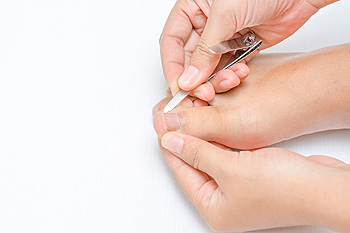
Ingrown toenails can become chronic if left untreated. Causes can include improper nail trimming, wearing tight footwear, obesity, trauma, excessive sweating, fungal infections, and hormonal changes. Symptoms encompass pain, swelling, redness, and pus formation. Classification into three stages guides treatment decisions, with conservative measures recommended for mild cases. Conservative approaches include proper nail trimming, wearing roomy shoes, and using gauze or specialized materials to separate the nail from the flesh. Surgical intervention becomes necessary for stages two and three, involving either partial or total nail removal and destruction of the lateral matrix to prevent regrowth. Regular podiatry care and adherence to post-treatment protocols are necessary for successful management of ingrown toenails. If you have repeated experience with ingrown toenails, it is suggested that you schedule an appointment with a podiatrist for an evaluation of the stage you are experiencing, in addition to obtaining proper treatment.
Ingrown toenails can become painful if they are not treated properly. For more information about ingrown toenails, contact David Mansky, DPM of Mansky Podiatry. Our doctor can provide the care you need to keep you pain-free and on your feet.
Ingrown Toenails
Ingrown toenails occur when a toenail grows sideways into the bed of the nail, causing pain, swelling, and possibly infection.
Causes
- Bacterial infections
- Improper nail cutting such as cutting it too short or not straight across
- Trauma to the toe, such as stubbing, which causes the nail to grow back irregularly
- Ill-fitting shoes that bunch the toes too close together
- Genetic predisposition
Prevention
Because ingrown toenails are not something found outside of shoe-wearing cultures, going barefoot as often as possible will decrease the likeliness of developing ingrown toenails. Wearing proper fitting shoes and using proper cutting techniques will also help decrease your risk of developing ingrown toenails.
Treatment
Ingrown toenails are a very treatable foot condition. In minor cases, soaking the affected area in salt or antibacterial soaps will not only help with the ingrown nail itself, but also help prevent any infections from occurring. In more severe cases, surgery is an option. In either case, speaking to your podiatrist about this condition will help you get a better understanding of specific treatment options that are right for you.
If you have any questions please feel free to contact our office located in Hastings, MI . We offer the newest diagnostic and treatment technologies for all your foot and ankle needs.
